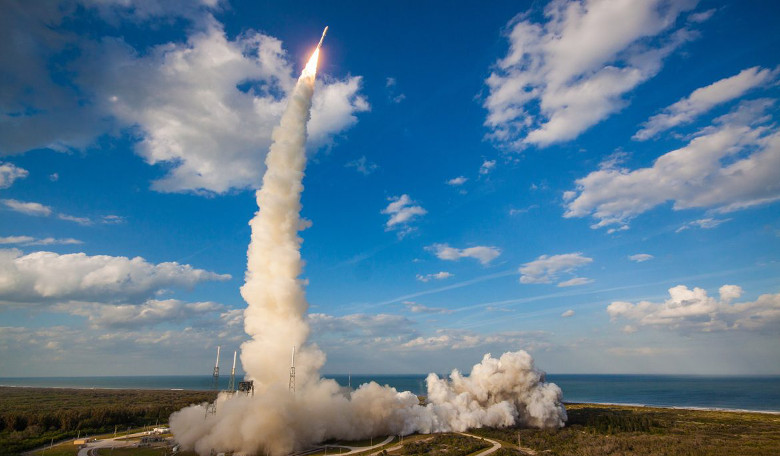Silicon Valley startup company SpinLaunch has announced its intentions to launch rockets into orbit, not with the aid of propellants like traditional rockets, but by spinning them very fast instead.
The company, which has recently raised $40 million from organisations such as Google and Airbus, is planning on using an electric-powered kinetic energy launch system that starts by spinning a vehicle up to 5,000 miles per hour around a centrifuge, before hurling it into space at hypersonic speeds.
The approach might seem more in keeping with the latest attraction at a theme-park, but the idea is to move away from traditional chemical rocket propulsion, such as kerosene and other fossil fuel derivatives, to get its vehicles off the ground.
"SpinLaunch's unique and proprietary approach to place satellites into low earth orbit is not only highly cost-efficient, but also safe and green," said Wen Hsieh from Kleiner Perkins, another investor of the technology. "Renewable energy sources such as solar and wind [eliminate] the use of toxic and dangerous rocket fuels."
Nonetheless, how exactly the technology works and how much electricity it will require in order to propel the rocket is unclear and although the company has a working prototype, it is giving nothing away about how its space catapult will operate.
“Some people call it a non-rocket launch,” said self-taught aerospace engineer CEO Jonathan Yaney in an interview with Bloomberg. “It seems crazy. It seems fantastic. But we are actually using relatively low-tech industrial components to break this problem into manageable chunks.”
The startup plans to begin launching by 2022 and its novel approach to delivering objects like satellites into orbit will reduce costs by orders of magnitude, thus allowing for multiple launches a day says Yaney.
With big-named companies blasting off on average around once a month and costing significantly more than the $500,000 the startup plans on charging, if SpinLaunch overcomes the challenges associated with the technology it could revolutionise the small launcher industry.
The company is now moving forward with plans to find its own launch facility to prove the technology works and has found five potential launch sites within the United States added Yaney.











